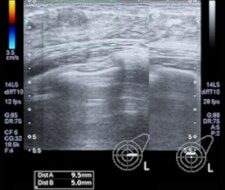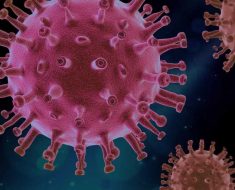What if we told you that eating your last meal at 2pm would lead to long-term weight loss? You’d probs give us some serious side-eye… After all, it’d practically be torture, right? Well, researchers at the University of Alabama Birmingham are suggesting that Early Time-Restricted Feeding (aka eTRF) is the key to curbing your appetite – and may help you shed Kgs as a result.
For the study, they recruited 11 men and women aged between 20 and 45, all with a BMI between 25 and 35. They were asked to take part in two separate feeding trials: one saw them eat three meals spaced out over a 12 hour period, while the other involved three meals over a six-hour period (e.g. brekkie at 8 and dinner at 12 pm.) The same types and amounts of foods were consumed for both experiments, which were each carried out over a four-day period. The researchers then measured the participants’ metabolism by placing them in a respiratory chamber. By doing this, they could see how many calories, carbohydrates and how much fat and protein they had burned during the course of each experiment. They also had their appetite levels recorded every three hours and hunger hormones in the morning and evening.
Interestingly, they found that the shorter eating window led to increased fat burning, as it improved the ability to switch between using food vs fat for fuel.

“We suspect that a majority of people may find meal timing strategies helpful for losing weight or to maintain their weight since these strategies naturally appear to curb appetite, which may help people eat less,” said Dr Courtney Paterson, the study’s co-author and assistant professor at the Department of Nutrition Sciences.
She attributed these results to following our bodies’ internal clock.
“Your blood sugar control is best in the morning, particularly the mid-morning, so that’s why we think you may get extra benefit by eating early, to be in sync with those natural circadian rhythms,” she said.
Source: Read Full Article





